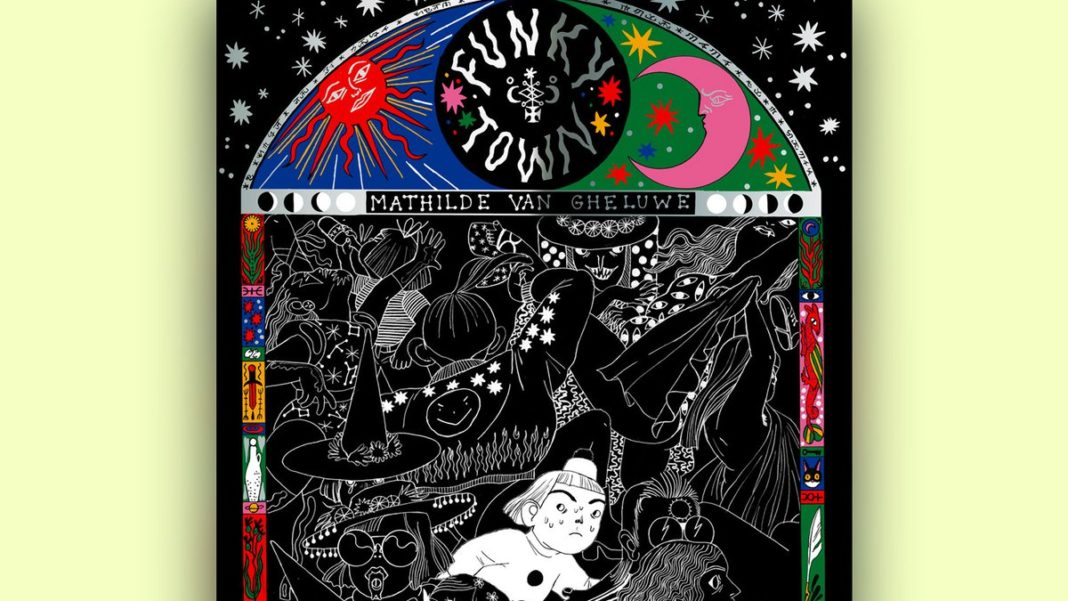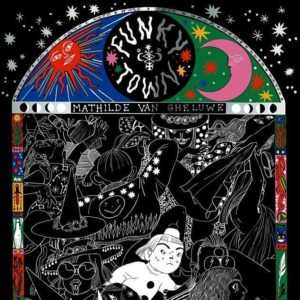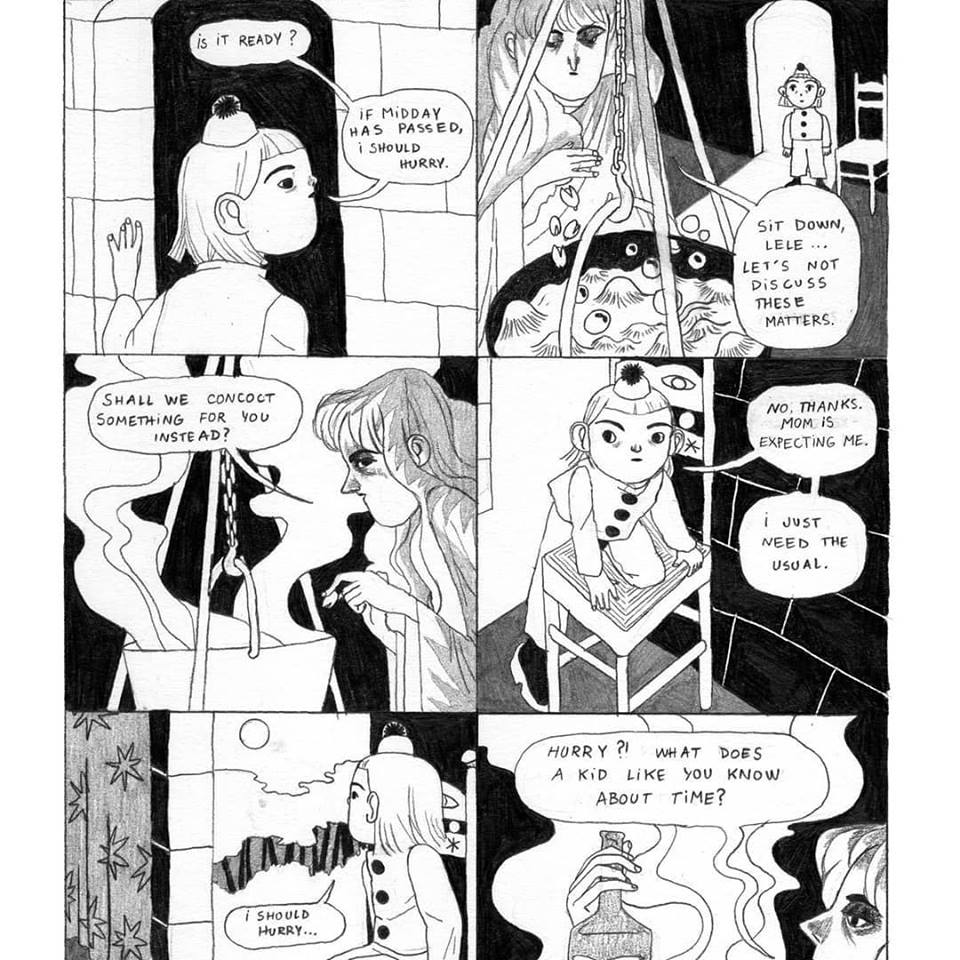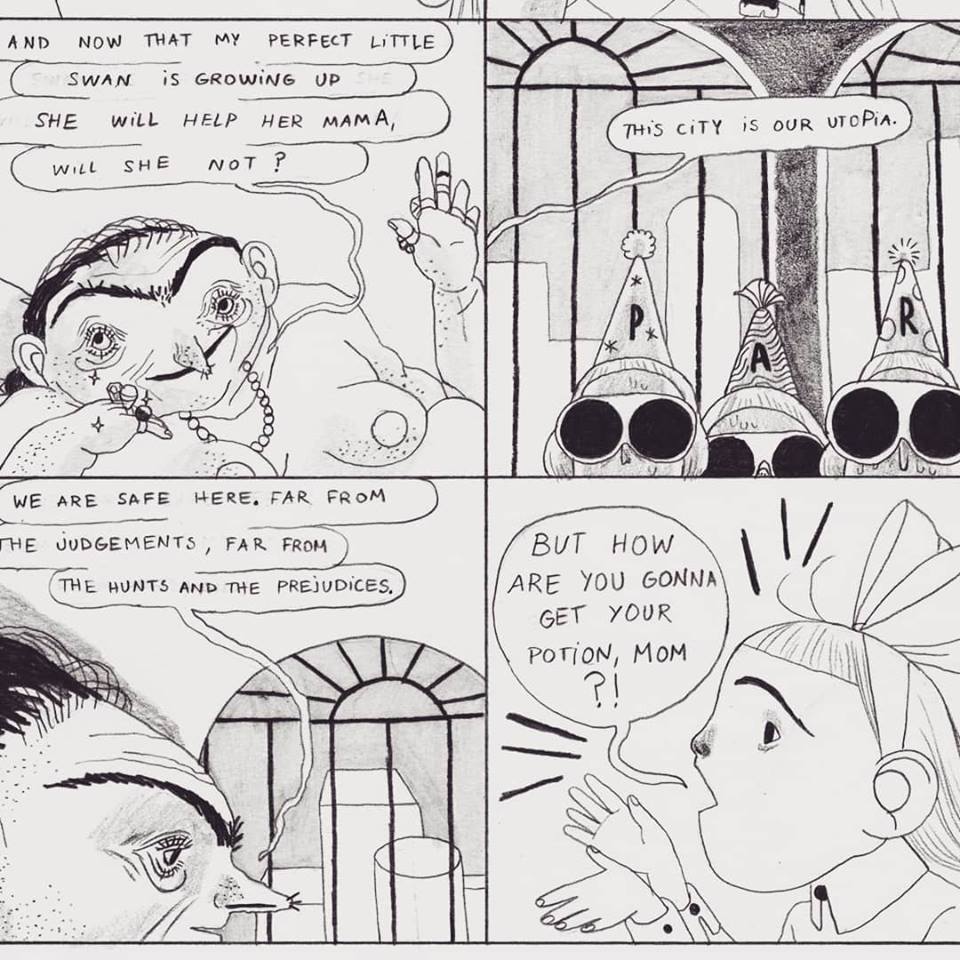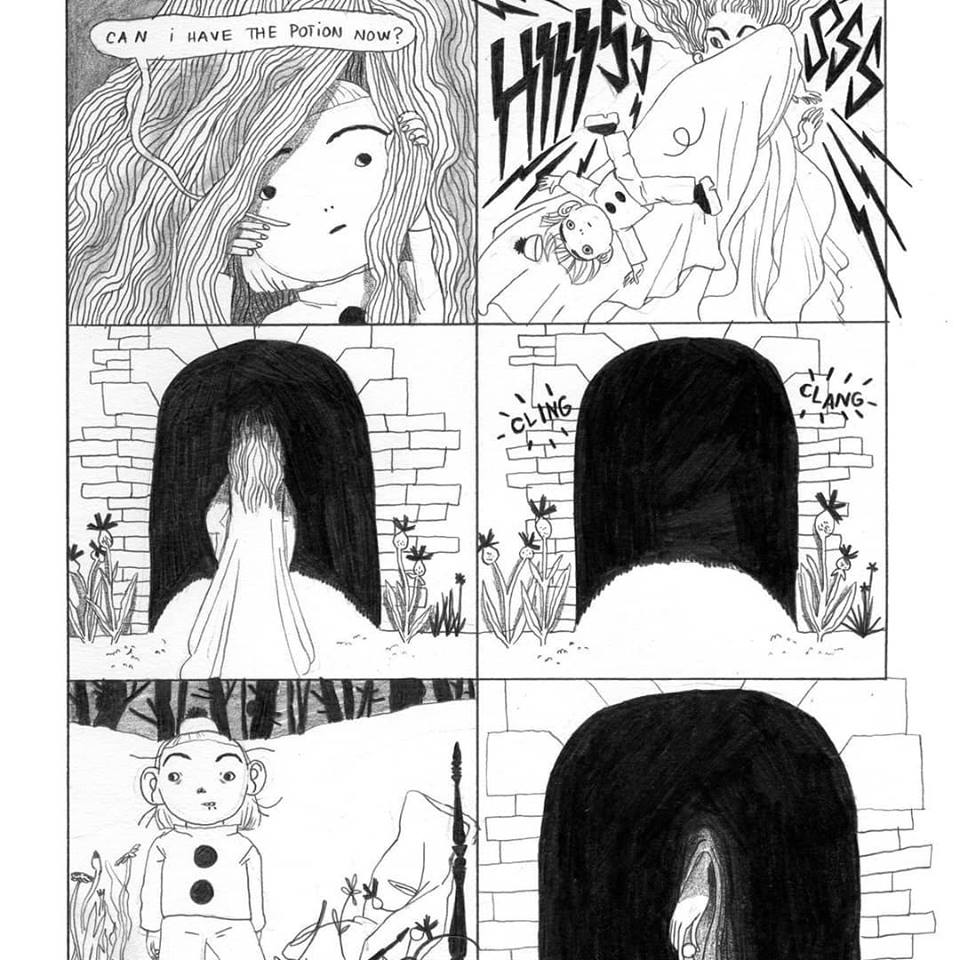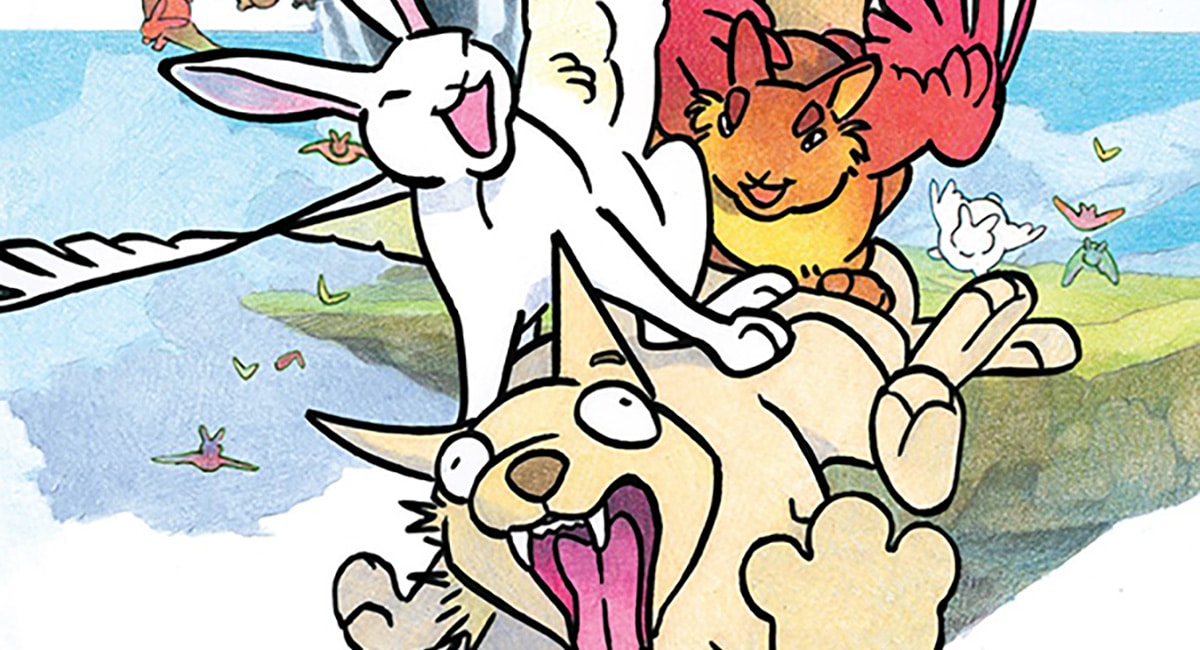Cartoonist: Mathilde Van Gheluwe
Publisher: PEOW Studio
Funky Town, the latest graphic novel from Mathilde Van Gheluwe bills itself as “a dark yarn of poetry, party and witchcraft.” It is also a dense, dramatic exploration of what it means to be living with a parent with a substance abuse problem, which tackles the loss of innocence, duality, and the need to move away from toxic relationships.
In Funky Town, the young Lele, almost 12 years old, lives in a city that comes to life at night when each citizens go out on the street to dance, drink and celebrate all night. Lele however, is more content to stay inside and write poetry, a symbol of her cultivating her inner life. She takes care of her mother, an enormous, angry and powerful cursed woman who spends her days lying down in a state of semi consciousness. See, she takes this “potion” from the Witch Baba Yaga. We never know what it is, but it’s implied she gets a temporary state of bliss before wanting more the next day. Baba Yaga is the provider, but it’s Lele who is the courrier. Lele would like nothing more than to live her life as a child, but her mother needs help, and she loves her so much, how could she say no. She knows something is wrong, but she’s too young to grasp what is happening to her. Innocence can be as beautiful as it can be dramatic.
Things begin to get out of hand as Lele grows up and become more critical and weary of her mother. As her poetry book gets filled out and she runs out of space, she wants nothing more than more space for herself, to be happy and independent and free of her mother’s control. That’s something that witch in the woods has understood as well. On her birthday, Lele receives a golem, Elle, who follows her everywhere. She’s even more constricted and eventually runs away from home, which leads to some unexpected consequences.
This book is fantastic and shows a very mature side of living with someone with substance abuse problems. It comes with highs and lows, and Van Gheluwe illustrates this perfectly. Lele’s mother can sometimes be a loving, nurturing and encouraging figure for her and some other time be cripplingly down to the point where she can’t move until she gets her next fix. It’s a disease that affects the entire family. The relationship that matters to the substance abuse IS the substance itself, and everything else is pushed aside. Another thing is that when you’re living with someone like that, you sometime find ways to keep yourself sane. You protect yourself from the very harsh reality in front of you. For Lele, that’s poetry. It’s something her mother enjoys too, which helps this child to spend quality time with her mom when she’s able to be sober. It’s a coping mechanism that this child had to build for herself to avoid the pain caused by her mother.
The backdrop into which this story is told is one of contrast between excess and scarcity. The titular Funky Town is a haven of concrete and skyscraper filled with a nightlife abundant with life, drugs, alcohol, neon lights and sex. Lele’s mother eats extravagant meals, her table filled with delicacies and they live in an opulent house. In opposition to this is Lele and her poetry, the freedom of a stray cat, the lightness of the woods in which resides Baba Yaga. There is constant tension between these two throughout the book. It’s in every thread of the book. Whether it’s dreams and reality, humanity and artificial life, day and night, mean or friendly people. Even her poetry places Lele in contrast with the rest of the citizens, who prefer the uncomplicated pleasures of the flesh. Van Gheluwe crafts a tale that constantly put her protagonist in opposition to the world around her. Whether Lele can succeed to find a place where she can be happy in this world, or if that’s even possible, is never certain.
Mathilde Van Gheluwe for her part creates a fantastic world for her story. There’s a texture to her lines that really benefit her story. Her characters lines are sharp, the figures constantly expressing an incredible range of emotions. It’s constantly expressing what the characters feel, regardless of what they might be saying. There is a wonderful attention being paid to the details of each characters, whether it’s rosy cheeks, hair placement, freckles, or the specific look of her characters, it all gives a very unique look to the book. This coupled with the way she shades pencil inks on the page gives a very immediate feeling. Her style reminded me of German expressionism films particularly in how it played with shadow and composition of black and white.
This is book is dark, moody, depressing, and upsetting. You wish that Lele will be saved, but she is doomed from the start. She’ll go down with her family, because there is no help coming for her. Pick up this book, it’s one of the best of the year, and it will break your heart.


